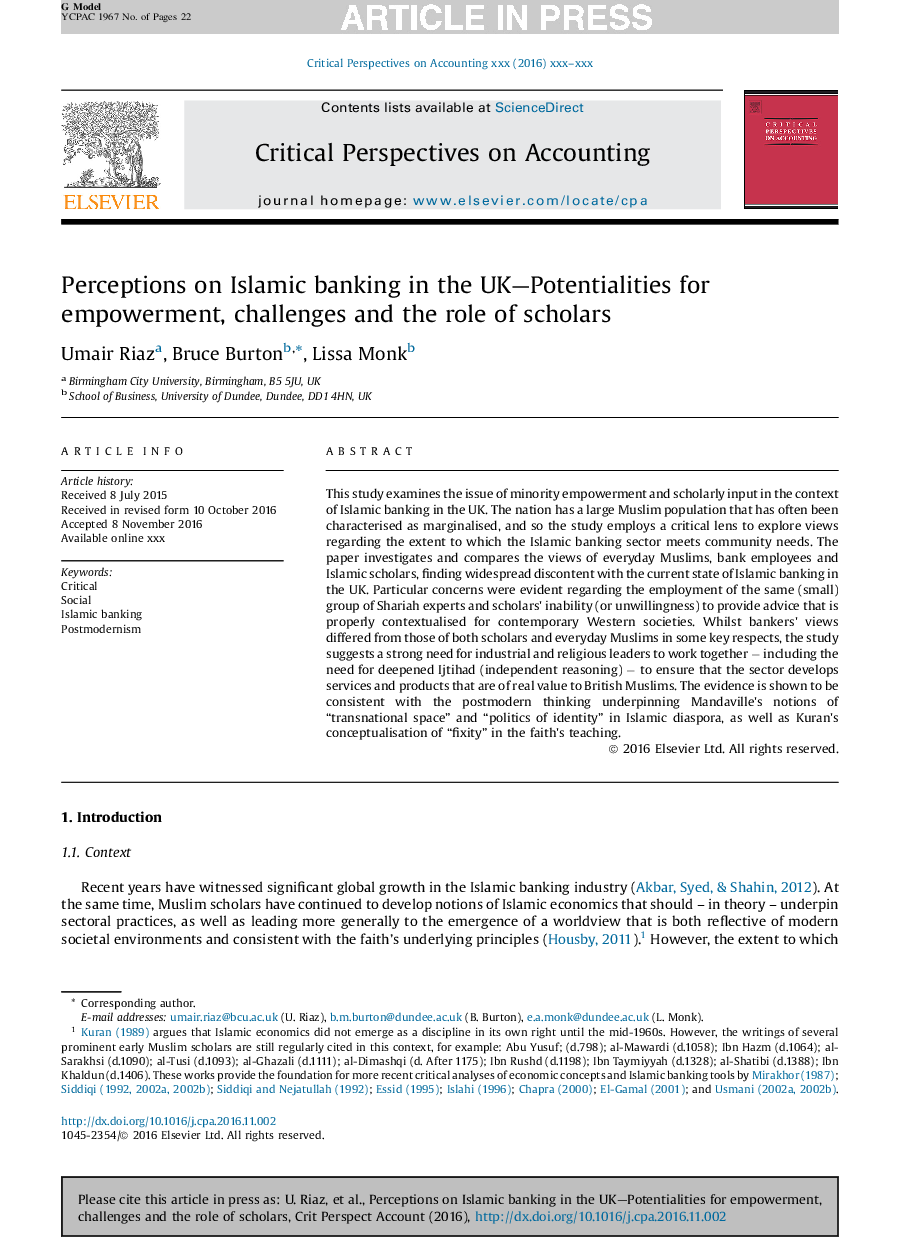| Article ID | Journal | Published Year | Pages | File Type |
|---|---|---|---|---|
| 5106878 | Critical Perspectives on Accounting | 2017 | 22 Pages |
Abstract
This study examines the issue of minority empowerment and scholarly input in the context of Islamic banking in the UK. The nation has a large Muslim population that has often been characterised as marginalised, and so the study employs a critical lens to explore views regarding the extent to which the Islamic banking sector meets community needs. The paper investigates and compares the views of everyday Muslims, bank employees and Islamic scholars, finding widespread discontent with the current state of Islamic banking in the UK. Particular concerns were evident regarding the employment of the same (small) group of Shariah experts and scholars' inability (or unwillingness) to provide advice that is properly contextualised for contemporary Western societies. Whilst bankers' views differed from those of both scholars and everyday Muslims in some key respects, the study suggests a strong need for industrial and religious leaders to work together â including the need for deepened Ijtihad (independent reasoning) â to ensure that the sector develops services and products that are of real value to British Muslims. The evidence is shown to be consistent with the postmodern thinking underpinning Mandaville's notions of “transnational space” and “politics of identity” in Islamic diaspora, as well as Kuran's conceptualisation of “fixity” in the faith's teaching.
Related Topics
Social Sciences and Humanities
Business, Management and Accounting
Accounting
Authors
Umair Riaz, Bruce Burton, Lissa Monk,
